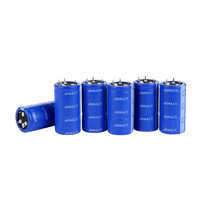

AUDIO NOTE CAPACITORS REVIEW FULL
But I think Audio Note still emphasizes on the midrange band, as if we are talking a full range speaker here. Should have better reliability because of its new design and also have better high frequency extension.

Well, it’s quite easy to oxidize (same like the Audio Note), so be careful and pay extra care when handling this kind of capacitor. This one uses pure copper case instead of paper. The different between this capacitor and the previous one actually only on the case material. But still, for a very complex music with a lot of high frequency resolution instruments (we are talking about LP with live music genre), I think this capacitor is still not good enough ( caveat :this is from my side, an owner of Duelund CAST Ag).įinally, we come to the latest contender, the Jensen Copper Foil Copper Tube. It has good midrange, but with better high frequency extension compared to the Audio Note, maybe around 20-30% better in terms of high frequency, while maintaining the sweet vocal (just “enough” sweet). With price tag around US$ 100 each (0.47 uF), it’s actually quite serious capacitor on the market. I have used this capacitor for quite long time to replace the old Jensen Copper Foil Aluminum Tube. The Jensen Copper Foil Paper Tube was my favorite (before). I would say, it’s your call to love or not to love this capacitor.
AUDIO NOTE CAPACITORS REVIEW DRIVER
I’m thinking a full-range driver performance to visualize the Audio Note capacitor sounds like (vs multi-way driver speaker). Good for overall performance, excellent if you do really like mid/vocal and not playing a lot of complex high frequency. At this price point (around US$ 55 each for 0.47 uF), I would say the performance is good to excellent. Staging is just enough, not too deep, but it’s quite well separated between the front, middle, and back side layer. The vocal is sweet, “swing and slow”, with good resolution. This new Audio Note Copper Foil Mylar-in-Oil has better high frequency resolution compared to the old one (Audio Note Copper Foil Paper-in-Oil type), but it’s just still not too “open” enough. I pick some tracks from Norah Jones (Come Away with Me), Chen Lily LPCD45 (我和你), Ingram Washington (My Funny Valentine), Eriko Ishihara (I’ve Got You Under My Skin), Ingebjorg Bratland (Mitt Hjerte Alltid Vanker), and Livingston Taylor (Isn’t She Lovely).ĭue to limited time, I can’t write down my impression on each track, so I will give overall conclusion of each capacitor. Does it make different? We will see (I mean, hear). Copper case makes the capacitor even heavier than the Paper tube. Just different on the chassis, one is Paper, the other is Copper. Jensen still loves the Paper, so both of the capacitors actually Paper-in-Oil design, with Copper Foil. Their old Paper-in-Oil design has some reliability problem, thus they prefer to change the design. According to them, the Mylar will give better durability instead of Paper. Audio Note switches to Mylar based instead of Paper. All of them were actually “in-oil” type capacitors.

I could test up to 6 capacitors on the same time, just switch the button to select which capacitor that I want to hear. My best choice is ELMA Selector, 2 poles, 6 positions. This to prevent “memory lost” of the sound of each capacitor. I want to make sure I could snap between capacitor in very short time, without too many delay. I always do such comparison test in real time. A little bit awkward, but at least it works flawlessly! So just this weekend, I spend few hours to have a listening session on this three capacitors.īelow is the test bed. Due to my main job, I couldn’t finish this article immediately. Some of my blog readers already email-ed me to ask about this. It’s been a long since I promised to write this article: A comparison between Audio Note Copper Foil Mylar-in-Oil, Jensen Copper Foil Paper Tube, and Jensen Copper Foil Copper Tube.


 0 kommentar(er)
0 kommentar(er)
